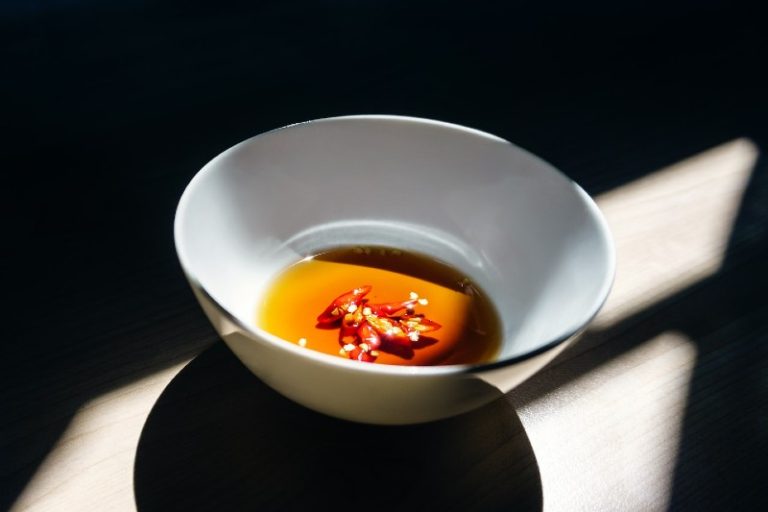The Peat Spade Inn
Longstock in Hampshire was the home of John Spedan Lewis, the founder of the John Lewis partnership, from the 1945 until his death in 1963. Here you are near the foodie stronghold of Stockbridge, which boasts a number of renowned delicatessens, butchers, pubs and pricey homeware shops. There are also quite a number of Good Food Guide recommended pubs in this prosperous neck of the woods, so expectations are high, to say the least.
Sitting proudly in Longstock’s main street is the Victorian Gothic wonder that is The Peat Spade Inn, which was formerly a simple thatched cottage. Peat was dug and collected near the River Test which runs through Longstock and it is recorded that one former Lord of the Manor allowed his labourers to dig as much fuel as they could manage in a day. The Inn is a reminder of those events, and until 1939 a real peat spade with a long blade hung from the ironwork on the house.
Less is definitely not more in terms of the interior style: a dark burgundy and brown leather scheme, scores of shooting, hunting and fishing photographs and paintings, old copper pans, stags heads, empty wine bottles, vintage paraphernalia and illustrated sports books cover every wall and surface.
The space is intimately small, the ceilings low and the mix of red walls, wooden floors and brown furniture create an ambiance in keeping with a 19th century country hostelry. The little touches are considered and comforting: warm bread in Hovis tins; salted snacks in Kilner jars; fisherman’s hampers replete with homemade sandwiches, pork pies, scotch eggs and chocolate brownies; lots of candles and soft lighting. If you like old English country pubs you will certainly feel at home here.
This area is renowned for its fly fishing and shooting and at these levels holds corporate and syndicate attractions. The photographs on the wall show a number of portly, satisfied middle-aged gentlemen, bedecked in tweed hunter jackets, corduroy plus fours and herringbone caps, holding their catch, prey, gun or fishing rod whilst beaming immodestly at the camera lens. There are even fishing rods on the ceiling.
If you wanted to make a weekend of it and relax by the river, visit Salisbury Cathedral, go to the Winchester’s Farmers’ Market and take in the antique shops in Romsey, you could stay in one of the seven bedrooms upstairs.
The Menu showcases robust, simple flavours combined with thoughtful presentation. Maybe it is just slightly too long – when you have good, classic dishes you need only offer a few without stretching the limits of human endeavour back in the kitchen. Only six starters, six main courses one cheeseboard and six puddings are really required to satisfy most customers’ appetites and whims – when it comes to Menus less choice is definitely a winner in terms of freshness, seasonality and frugality, themes concurrent with today’s zeitgeist and sensibilities.
We ordered Portland white crab mayonnaise, brown crab pate on toasted sourdough with avocado puree: the crab was soft, moist, salty and clean in flavour. A chestnut mushroom risotto cake was a good attempt at a Sicilian arancino {or Roman suppli, whichever way you look at it}, but the mixture of Hispi cabbage, pea puree, tomato coulis and parmesan crisp was over-gilding the lily. The lemon sole with new potato, samphire grass, brown shrimps and caper brown butter redressed the balance: the dish was simple with well-seasoned flavours and simple execution. The temptation in English pubs is to create dishes that fulfil the “meat and two veg” imperative that underpins British cooking, but, in fact, letting the individual, main hero of the dish shine through without recourse to extra carbohydrates or embellishements is now, surely, a more modern and desirable trend.
The tarragon pannacotta with poached pear and raspberry puree could have done without the raspberry puree – either one fruit or the other would have sufficed. It is good to see gooseberries used when they are in season, and the Menu offered a gooseberry jam bakewell tart and gooseberry cream with, again, said offending raspberry puree.
With excellent farms and fishing all around the area as well as in nearby counties, God’s own larder is on the back step, and The Peat Spade Inn Chefs make some use of this privilege: we spotted Alresford watercress and Greenfields pork from Andover, but maybe more could be highlighted from this prosperous region. Lyburn Farm and Tunworth Cheese should certainly be on the Menu.
The Peat Spade Inn forms part of the Miller’s Collection, which also includes The Queen’s Arms in East Garston, Berkshire and The Anchor Inn in Lower Froyle, also in Hampshire. The group is owned by Andrew Clarke and Lucy Townsend, who between them have notched up years at Le Gavroche, Claridges, Quo Vadis {when run by Marco Pierre White}, Le Manoir Aux Quat’Saisons and the Hotel du Vin in Winchester.
It is good to see, in this tough economic climate, a village inn flourishing locally as well as attracting visitors from further afield. It’s a good ship, well run, with reasonable pricing and good intentions. You won’t go wrong.
Contact Details
The Peat Spade Inn www.peatspadeinn.co.uk

